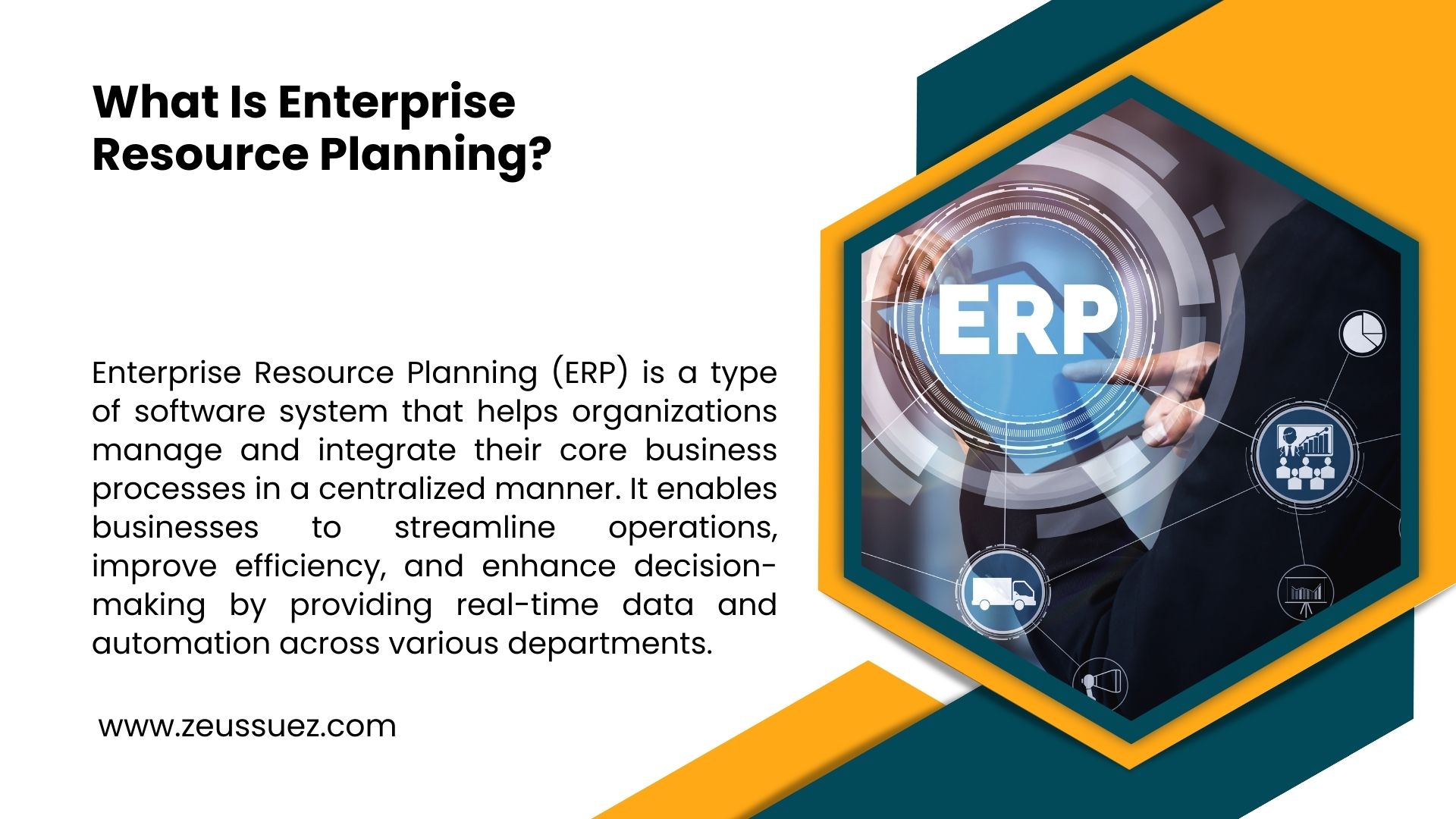Enterprise Resource Planning (ERP)
Enterprise Resource Planning (ERP) is a type of software system that helps organizations manage and integrate their core business processes in a centralized manner. It enables businesses to streamline operations, improve efficiency, and enhance decision-making by providing real-time data and automation across various departments.
Key Features of ERP:
- Centralized Data Management – Stores and manages data from all departments in one place.
- Automation – Reduces manual work by automating business processes.
- Real-Time Reporting & Analytics – Provides insights to improve decision-making.
- Scalability – Can grow with the business by adding new modules and functionalities.
- Integration – Combines various business functions such as finance, HR, supply chain, and customer relations.
Common ERP Modules:
- Finance & Accounting – Manages financial transactions, budgets, and compliance.
- Human Resources (HR) – Handles employee records, payroll, and recruitment.
- Supply Chain Management (SCM) – Oversees inventory, procurement, and logistics.
- Customer Relationship Management (CRM) – Enhances customer interactions and sales tracking.
- Manufacturing & Production – Manages production planning, scheduling, and tracking.
Benefits of ERP:
✅ Improved efficiency and productivity
✅ Enhanced collaboration across departments
✅ Better decision-making with real-time data
✅ Cost savings through process optimization
✅ Scalability for business growth
Popular ERP Systems:
- SAP ERP
- Oracle ERP
- Microsoft Dynamics 365
- NetSuite ERP
- Odoo ERP
- ICAMPUS 360
- ILearn360
ERP is essential for businesses looking to streamline operations and drive digital transformation.
